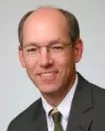Originaly published in the Marcellus Shale Law and Policy Update
The Pennsylvania Public Utility Commission (PUC) will have expanded powers of the purse and oversight under the shale impact-fee legislation recently signed into law by Pennsylvania Gov. Tom Corbett.
One lobbyist for the natural gas industry described the new powers as a "significant shot in the arm" for the regulatory oversight agency.
The new law authorizes the PUC to collect the impact fees from natural gas drillers and then to disburse the funds under the following general formula: 60 percent to the counties and local government that lie within the shale drilling area and the remaining 40 percent toward statewide environmental projects, including acid mine drainage remediation, water projects, flood control, statewide highway and bridge improvements, projects for open space and hazardous sites cleanup.
The PUC will also have pre-enactment and post-enactment oversight over local zoning ordinances. A local government can approach the PUC for guidance on whether a proposed zoning ordinance overly restricts drilling. A driller can also appeal to the PUC if it believes a zoning ordinance is enacted merely to restrict drilling.
Finally, the new law authorizes the commission to assess each well $100 to cover its administration costs.
A spokesperson for the PUC said the Commission was setting the mechanisms in place for collecting the fees, and "writing the checks." The drillers begin paying the fees this September to cover drilling activity in 2011.
At a state Senate budget hearing on February 14, 2012, PUC Commissioner Rob Powelson told Appropriations Committee members that the commission would outsource the collection and disbursement of the impact fees for the short term—probably for the first 18 months.
The fee will rise from $190,000 per well over 15 years if gas prices continue to sink and stay below $2.25 per thousand cubic feet for 15 years. But if those prices triple, the fee would bring in $355,000 over the same 15 years.
On top of the $100 per well fee, lawmakers allotted $250,000 from the state's General Fund to help the PUC incorporate the databases needed to track shale development.
The PUC has approximately 500 employees, with headquarters in Harrisburg and regional offices in Pittsburgh, Philadelphia and Wilkes-Barre. PUC's five commissioners are appointed by the governor and serve five-year terms.
Stephen L. Teichler practices in the areas of energy law and litigation at Duane Morris LLP. Mr. Teichler has represented major international energy companies in the full spectrum of their legal activities, ranging from appellate proceedings involving administrative rulemaking and adjudications to civil litigation in federal and state district courts. He is currently in the forefront of the restructuring of the electric service industry, representing Regional Transmission Organizations, Independent System Operators and major utilities.
Seth v.d.H. Cooley is chair of Duane Morris LLP's Environmental Law Practice Group. Mr. Cooley represents clients in environmental matters arising under an array of federal and state programs including the federal Clean Air Act, Superfund, Clean Water Act, and Resource Conservation, Recovery Act and Oil and Gas programs. For more than 20 years Mr. Cooley has handled major matters for clients in the manufacturing, service, and financial sectors in environmental litigation, regulatory, and transactional matters.
This article is for general information and does not include full legal analysis of the matters presented. It should not be construed or relied upon as legal advice or legal opinion on any specific facts or circumstances. The description of the results of any specific case or transaction contained herein does not mean or suggest that similar results can or could be obtained in any other matter. Each legal matter should be considered to be unique and subject to varying results. The invitation to contact the authors or attorneys in our firm is not a solicitation to provide professional services and should not be construed as a statement as to any availability to perform legal services in any jurisdiction in which such attorney is not permitted to practice.
Duane Morris LLP, a full-service law firm with more than 700 attorneys in 24 offices in the United States and internationally, offers innovative solutions to the legal and business challenges presented by today's evolving global markets. Duane Morris LLP, a full-service law firm with more than 700 attorneys in 24 offices in the United States and internationally, offers innovative solutions to the legal and business challenges presented by today's evolving global markets. The Duane Morris Institute provides training workshops for HR professionals, in-house counsel, benefits administrators and senior managers.


